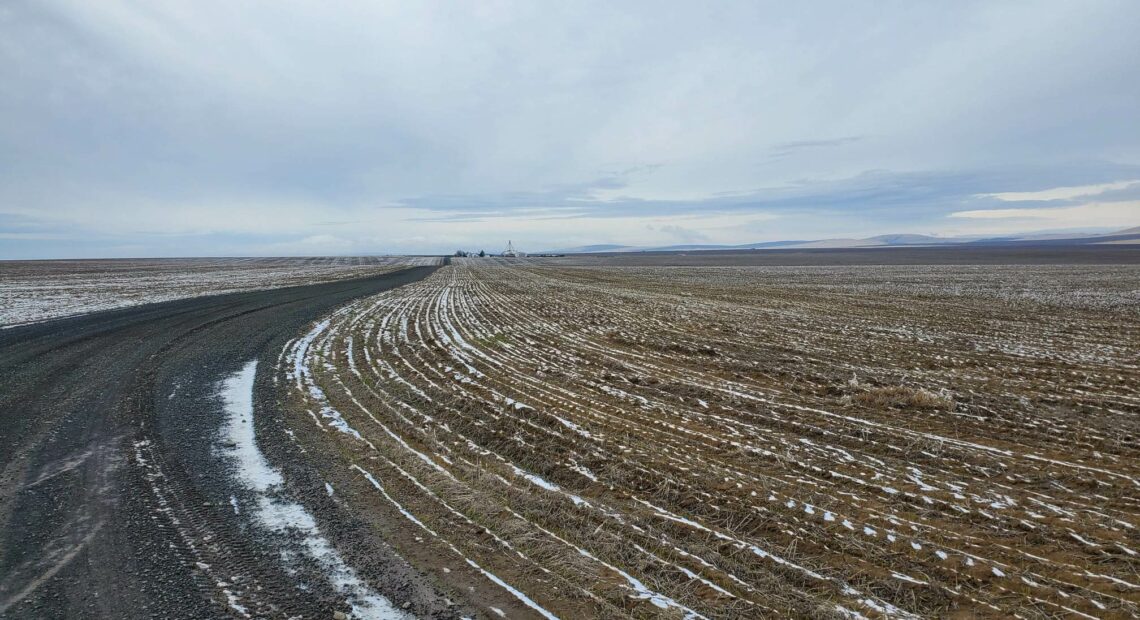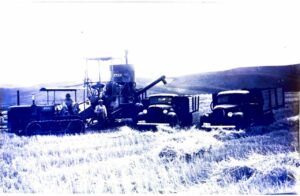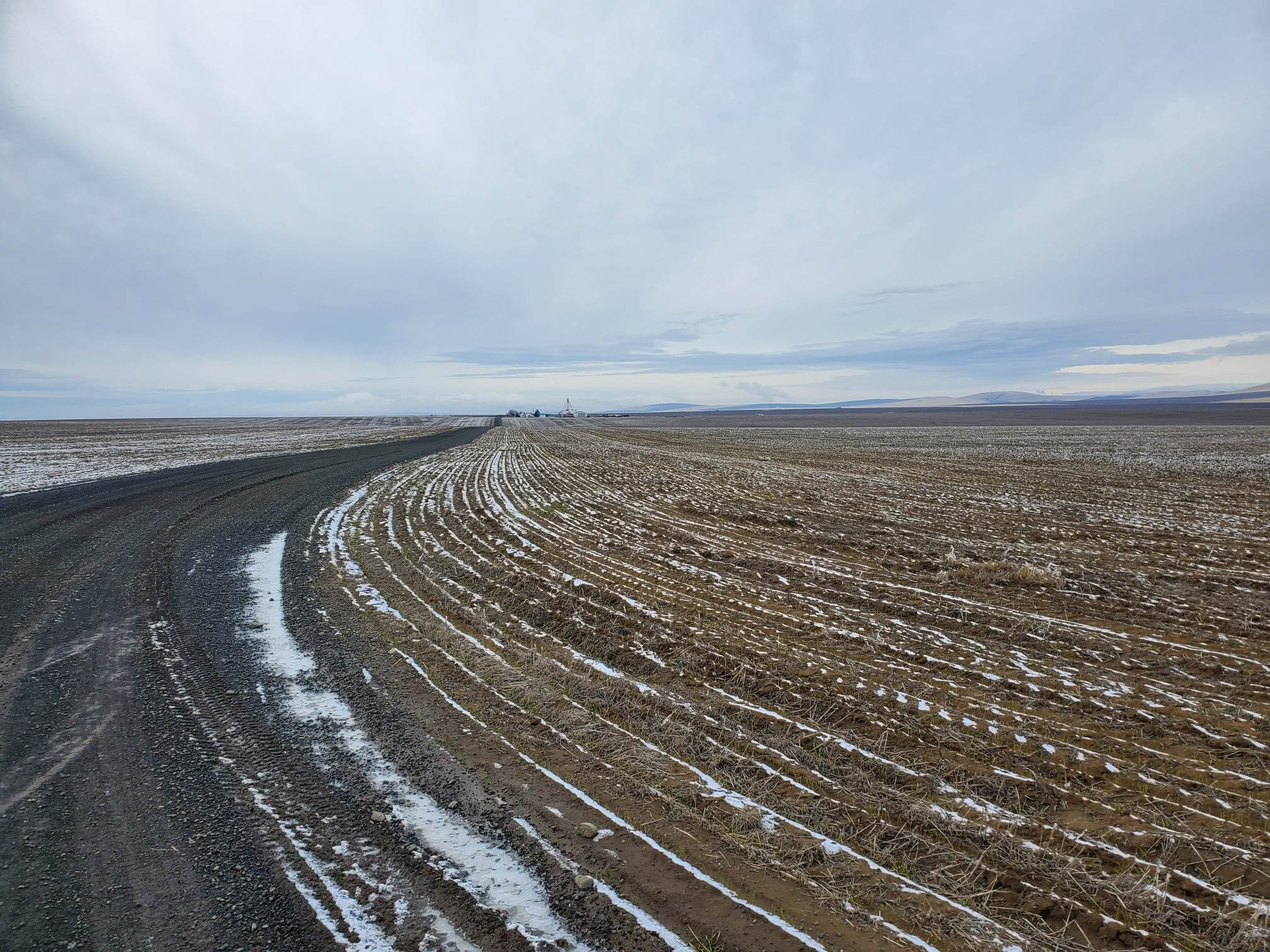
Clean energy project proposal in the Columbia Basin generates controversy and support
Listen
(Runtime 4:00)
Read
Scout Clean Energy, a renewable energy company from Colorado, began looking at Horse Heaven Hills in 2016 as the prospective site for a clean energy center. Horse Heaven Hills is comprised of a long range of rolling hills in southwest Washington, spanning Benton, Klickitat and Yakima counties. Now Scout Clean Energy is proposing building an energy site that would include solar arrays, battery storage and wind turbines. But locals have conflicting opinions about the proposed Horse Heaven Clean Energy Center, as it winds its way through permitting processes.
Public hearings, community forums and published opinions have been shared since the project application was submitted in 2021. Stakeholders include farmers wanting to lease land, groups opposed to where the project would be built and unions looking forward to the high-paying jobs.
Tri-Cities Community Action for Responsible Environmental Stewardship or C.A.R.E.S. was formed in opposition to the proposed Horse Heaven Clean Energy Center in 2020.
The group recently hosted a private tour of the proposed project site in the Horse Heaven Hills area. The road leading to the site goes up a steep grade to the area that would house the energy center.
It was a windy, cold day. The bare wheat fields seem to stretch on for miles with a strip of land running between the tilled soil and the steep walls of the canyon, which serves as a wildlife pathway.
“We had this basic problem with this facility and this project … it was too many turbines, too close to people,” said Paul Krupin, a retired attorney and environmental specialist who works with Tri-Cities C.A.R.E.S. “It also harms wildlife.”
Krupin and C.A.R.E.S. believe the impact on the large urban population of the Columbia Basin is what makes this project different from other wind farms in the state. Krupin says over 100,000 people will be affected and some of the harm is the visual effect of seeing the turbines.
“They do not need to destroy the hillsides, you know, the ridge lines. They can protect the wildlife,” said Krupin. “And they can also reduce the visual impact on people.”
He thinks one solution is to pull back the turbines from the ridges and has created maps to show current wildlife routes and where he believes the wind turbines could be placed instead.
Krupin says other wind farm projects have been rejected because of their proximity to urban populations, such as the Radar Ridge Facility in Southwest Washington.
Tri-Cities C.A.R.E.S. Founding Member, Dave Sharp, says the group is not opposed to green energy and supports smaller footprint energy projects, such as solar farms.
Sharp’s home in rural Benton County, just outside the city limits of Richland, has a panoramic view of the Horse Heaven Hills area, and on clear days, the grand mountains of the Cascade Range. Many new homes being built on former farmland and along the ridge lines are also visible.
According to C.A.R.E.S. Member Pam Minelli, the group is solely opposed to the proposed wind farm, and they are not opposed to houses being built on the ridges.
“We’re not against green energy or renewable energy,” Minelli explained. “The point of this is we feel that this project is poorly sited.”
Tri-Cities C.A.R.E.S. is also concerned about the dust that will fill the air if the turbines are constructed.
Others, including the Benton Public Utility District, are formally opposing the Horse Heaven Clean Energy Center project.
But supporters of the project say this type of construction is nothing new for the area.

Dave Kobus, senior project manager of the Horse Heaven Hills Clean Energy Project (Courtesy: Scout Clean Energy)
There are extensive wind farms in the region already, including one in the Wallula Gap region called the Nine Canyon Wind Project, formerly managed by Dave Kobus. Kobus is now the Senior Project Manager for the Horse Heaven Hills Clean Energy Center project. He says this project is an extension of other wind farms that are already in place along the ridge lines in the area.
“In this part of the country, you have to site turbines on the higher ground, because it actually represents the feature that accelerates the wind enough, [the wind] that’s coming up the gorge, so that it can be commercially viable,” said Kobus.
He says the proposed wind farm will be 24 miles long as the crow flies.
“We identified 244 viable wind turbine locations. And that land is all leased with one exception,” said Kobus.
Kobus says Scout Clean Energy has signed 35-year leases with landowners and those leases are available for extension.
One of the farmers who’s signed a lease agreement is Christopher “Bubba” Wiley, a third generation dryland wheat farmer in Horse Heaven Hills. He current leases acreages and his family owns Wiley Ranches.

Bubba’s great-grandfather, John Wiley, farming in Walla Walla shortly before moving to Horse Heaven Hills, circa 1940. (Courtesy: Christopher “Bubba” Wiley)
“My family has been here on the Horse Heaven Hills since 1944 when my great-grandparents moved here from the Dayton-area,” said Wiley.
Wiley says prices for certain things, like gas, have risen while wheat profits have stayed nearly the same. He says the Horse Heaven Hills community is slowly dying, with family farms going bankrupt one by one. Wiley says leases like the ones with Scout Energy could make a big difference.
“It could breathe new life into our struggling community through a source of stable income,” he said. “When farming is so volatile and you’re not even making a profit every year, you’re hoping your good years outweigh your bad years.”
After the wind turbines are placed, Wiley says they will still be able to farm 95% of their land.
The new roads being put in for the construction portion of the project will also benefit farmers who wouldn’t otherwise be able to pay for miles of gravel roads to reach the far sides of their properties.
Local unions also support the proposed Horse Heaven Clean Energy Center, and have signed agreements with Scout Clean Energy to ensure local union workers will be be hired for its construction.
Aubrey Newton represents Laborers International.
“There’s going to be a large amount of jobs that are going to be brought to the local area,” Newton said. “And this is so important, because we’re seeing all over, not only our region, but all over the country actually, a lack of local workforce being utilized on energy projects, specifically wind and solar projects.”
Scout Clean Energy has signed agreements with Local 348 and with Local 302 to hire locals to work on the project. Newton says they estimate the job will last more than a year with high-paying jobs for hundreds of people and will pay a higher-than-normal salary, bringing more money into the local economy. Newton says the average salary is going to be about $100,000.
Mike Bossé is the business representative for Local 302, a chapter of the International Union of Engineers. He says these contracts ensure great benefits for the community.
“You’re talking men and women that live here locally, doing the construction of this project locally, injecting their money through the wages directly into our local economy,” Bossé said.
Bossé lives in Benton City and the wind turbines would be visible from his own home.
“98.9% of all these proposed windmills are on private ground. And the private landowners should have the right to do what they wish, within permitting of the law,” said Bossé. “I’ve heard it numerous times, throughout the public hearings and stuff on this matter, ‘Well, that land should all be set aside for real estate, urban sprawl, subdivisions …’ Well, that’s not what those farmers want that land to be used for.”
Currently the Environmental Impact Statement is available for public comment.
At the end of January, public comments will be put into a staff report for a formal review. Formal recommendations will made by the Energy Facility Site Evaluation Council (EFSEC) and a judicial hearing will be conducted following those recommendations. Governor Inslee will later make the final decision on if the project will be approved.
Correction: A previous version of this story misspelled David Kobus’ name as Krobus, and misidentified Nine Canyon Wind Project as 9 Mile Canyon Wind Farm.
Correction: A previous version of this story incorrectly stated that Yakama Nation is opposed to the project. The Yakama Nation has declined comment because of current, sensitive litigation. Local Union 598 was replaced with 348.
















